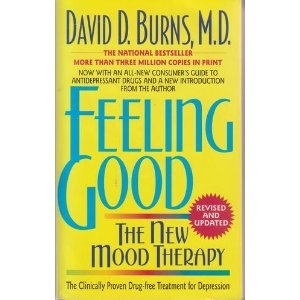If you are serious about overcoming depression The New Mood Therapy by Burns is definitely the book to buy. Reading it could be a new start in life for you, as it was for me. The book was …
Continue Reading about David Burns ‘Feeling Good, The New Mood Therapy’ – Book Review →

